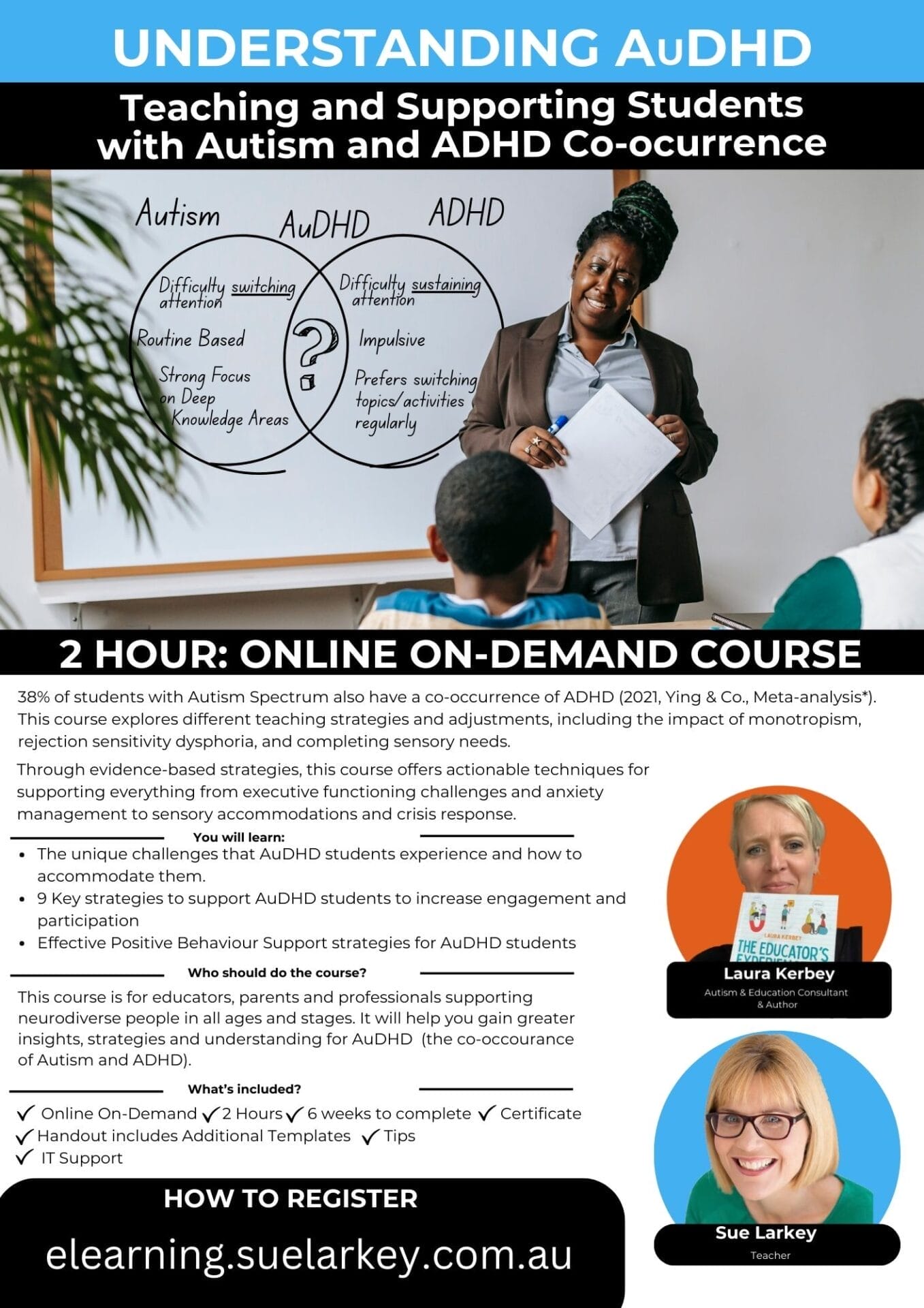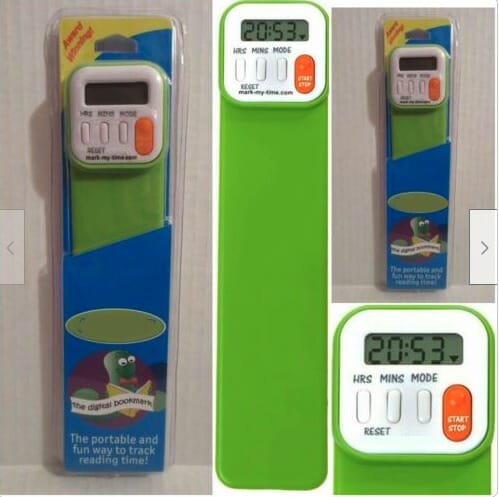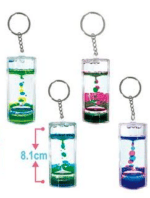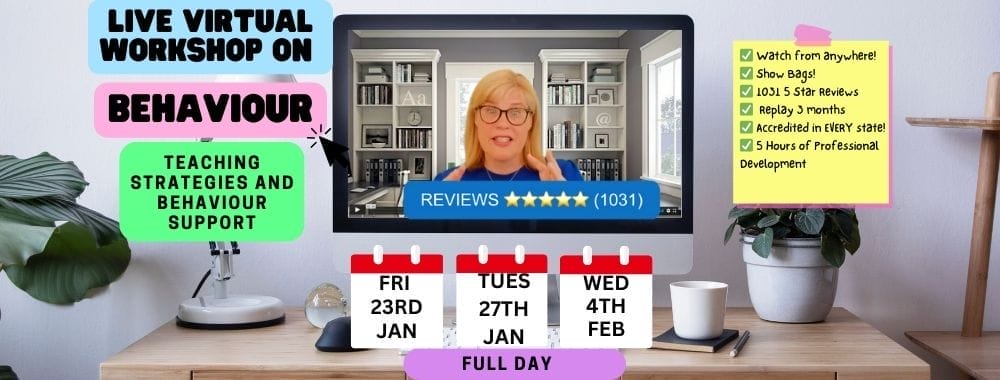Have you heard Time Blindness? Did you know it can cause behaviour in Neurodiverse students and what to do?
Managing Time Blindness in Neurodiverse Students

**************************************
Join me for an upcoming Workshop:
Can't make these Workshop dates? Join me for a self-paced on-demand course:
Sue Larkey On-Demand Workshops
**************************************
Supporting Neurodiverse Students with Time Blindness
Discussed in this Episode:
✅ What is Time Blindness?
✅ Behaviours you might see to indicate Time Blindness
✅ How to make time accessible and visual
✅ Time management is anxiety management
✅ Unless we give the students the tools to manage time, then you’re going to get a lot of anxiety and a lot of behavior.
✅ Routines are what give you a sense of time passing.
✅ The now, next, later. Time plus a schedule is what equals success
✅ We need to make time intentional and visual.
✅ If a child was colourblind, we would put in place support. And we need to make time much more accessible.
Understand Managing Time Blindness in Neurodiverse Students!
Navigating Time Blindness Issues in Neurodiverse Students
1. Use visual timers. Use visual timers, such as Time Timers, liquid timers, and portable digital schedules, to make time more concrete and accessible.
2. Provide reminders and alarms to help students keep track of time.
3. Break tasks down into manageable chunks and discuss how long each part takes.
4. Teach time management skills explicitly, including planning, pacing, and having a “Plan B” if time runs out.
5. Positively reinforce students when they manage time well and arrive on time.
6. Incorporate routines and schedules to help students develop a sense of time passing.
7. Adapt time tools and strategies to individual needs and preferences (digital vs. analog, count up vs. count down).
LIQUID TIMER
The Magic of Using Liquid Timers. Using liquid timers can be a game-changer for children with autism. Learn about their calming effects, use as a reward, and role in teaching patience and aiding transitions.
I am beyond excited to announce that, after a long search for the perfect supplier, we’ve finally restocked these magical devices!
27 in stock
KEYRING LIQUID TIMER
Liquid Sensory Keychains for Autism Spectrum and Other Neurodiversity.
Discover the Calm in Your Pocket: Liquid Sensory Keychains for Autism Support. Embrace the soothing waves of tranquillity with our Liquid Sensory Keychains – your pocket-sized peace companion. Designed specifically with the needs of students on the autism spectrum and neurodiversity in mind, these keychains are more than just an accessory; they are a discreet and accessible tool to promote calmness and concentration in a world that can often feel overwhelming.
Out of stock
TIME TIMERS
With the new Learning Center Classroom Set, the Time Time 20cm (Medium), a educator-favorite, is now available in a multi-pack set of three. Each set comes with three timers of different colours to aid in colour curriculum during the early years and for time management in colour-coded classrooms.
Available in two different colour sets:
- Primary Color Collection: Red, Yellow, and Blue, OR A
- Secondary Color Collection: Orange, Green and Purple.
Features
- Each set includes three Medium visual timers (20cm x 20 cm) in three different colours
- Includes three (3) dry erase cards for 1:1 Activity Management
- Includes one (1) free download of Time Timer Desktop App
- Includes bi-fold guide for using center timers in the early learning classroom
- Silent operation with optional audible alert at end of timing
- Magnetic back and fold-up feet
- Protective lens with center-set knob
- Each timer requires 2 AA/1.5V batteries (not included)
Download ‘IDEAS TO USE LIQUID TIMERS TO TEACH, CALM AND MOTIVATE’
More Ideas in my Books:
| by Sue Larkey | This is the ideal reference for schools to successfully integrate students into the classroom. It provides easy to follow, proven strategies and worksheets to use immediately. Dr. Tony Attwood writes in the foreword: “Sue has a remarkable ability to identify and briefly explain the difficulties experienced by a child with autism in a regular classroom and to suggest realistic and practical strategies to improve abilities and behaviour. Her advice is succinct and wise.”
10 in stock
| by Sue Larkey & Anna Tullemans | Revised and expanded in 2016. A practical guide to secondary school. Ideas for
all staff, from curriculum engagement, accommodations, group work, homework, using technology, behaviour support, organisational skills to building independence. Includes proformas to photocopy and save you time. This book has over 100 pages of proven ideas and strategies. MASSIVE TIME SAVER for busy Teachers & Parents
87 in stock
GREAT TIMERS TO SUPPORT TIME BLINDNESS
-
Sale!
Time Timer – 20cm Medium
Original price was: $65.00.$55.00Current price is: $55.00. -
Sale!
Time Timer – 7.6cm Small
Original price was: $50.00.$40.00Current price is: $40.00. -
Portable Schedule with Digital Timer
$24.95 -
Sale!
Time Timer PLUS
Original price was: $80.00.$70.00Current price is: $70.00. -
Sale!
Time Timer MOD – Charcoal Colour
Original price was: $60.00.$50.00Current price is: $50.00. -
Sale!
Time Timer – 20cm (Medium) Classroom Set (Set of 3)
Original price was: $245.00.$215.00Current price is: $215.00. -
Liquid Timers
$15.95 -
Liquid Key Ring Sensory Tool
$5.00
Check out my other Podcast on Why Schedules can Help Establish Routines:
UNDERSTANDING AuDHD: Teaching & Supporting Students with Autism and ADHD Co-occurrence
✅ 2 Hours, 8 Lessons
✅ 6 Weeks to Complete
✅ Certificate of Completion
✅ Lesson Transcripts
 2 Hours
2 Hours

$149















 2 Hours
2 Hours


 Sorry we no longer ship items outside Australia. Please consider the digital versions of Sue’s Books –
Sorry we no longer ship items outside Australia. Please consider the digital versions of Sue’s Books – 